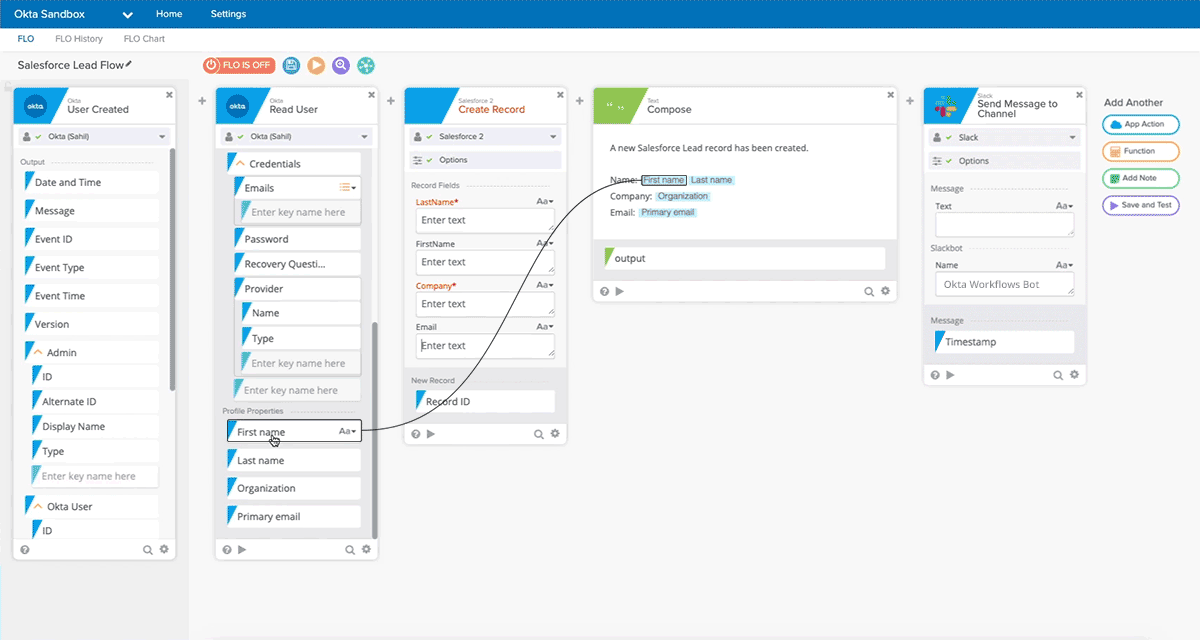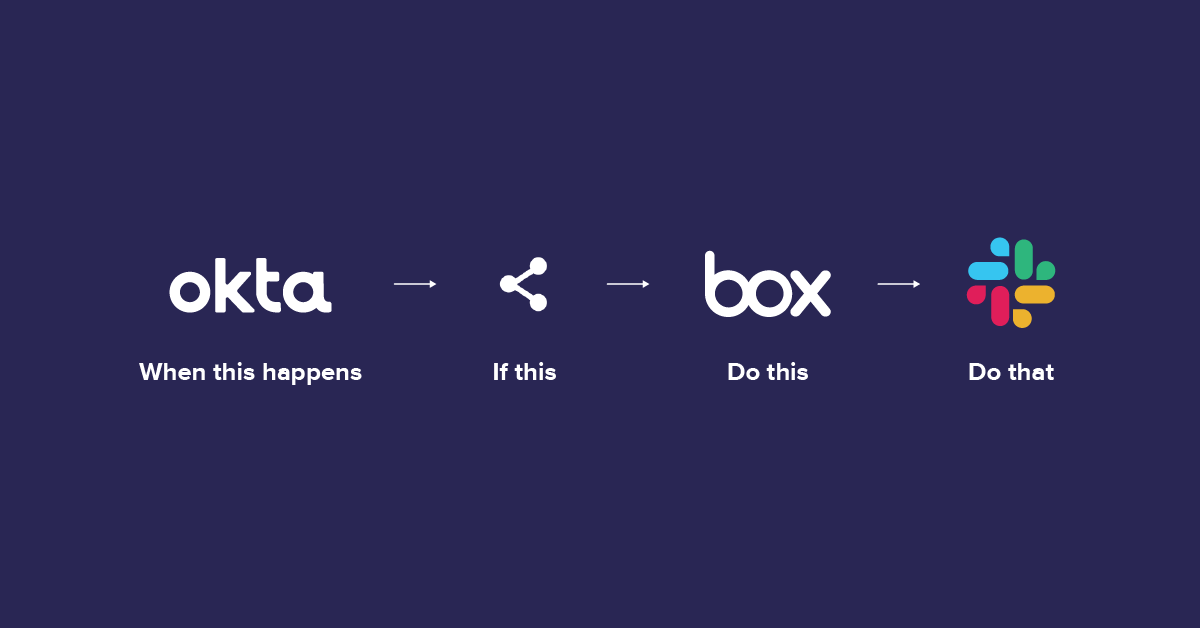Okta launches Lifecycle Management Workflows to make building identity-centric processes easy
Okta, the popular identity and access management service, today used its annual (and now virtual) user conference to launch Lifecycle Management Workflows, a new tool that helps IT teams build and manage IFTTT-like automated processes with the help of an easy to use graphical interface.
The new service is an extension of Okta’s existing automation tools. But the key here is that IT teams and developers can now easily build complex identity-centric workflows across a wide range of applications. With this, these teams can easily automate an onboarding process, where setting up a new Okta account also immediately kicks off processes on third-party services like Box, Salesforce, ServiceNow and Slack to set up accounts there. The same goes for offboarding workflows and username creation. A lot of companies still do this manually, which is not just a hassle but also error-prone.
“Adopting more technology is incredibly beneficial for enterprises today, but complexity is a significant side effect of a changing technology ecosystem and workforce. There is no better example of the potential challenges it can create than with lifecycle management,” said Diya Jolly, chief product officer at Okta. “Okta’s vision of enabling any organization to use any technology goes deeper than just access; it’s about improving how organizations use technology. Okta Lifecycle Management Workflows improves the efficiency and security of enterprises through its simple user experience and broad applicability, keeping organizations secure and efficient without requiring the complexity of writing code.”
Okta, of course, had lifecycle management features before, but now it is also putting its acquisition of Azuqua to work and using that company’s graphical interface and technology for making it easier to create these automation processes. And while the focus right now is on processes like provisioning and de-provisioning accounts, the long-term plan is to expand Workflows with support for more identity processes.
As Okta also stresses, administrators can also manage very granular access across the supported third-party tools like assigning territories in Salesforce or access to specific group channels in Slack, for example. For temporary employees, admins can also set up automatic de-provisioning workflows that revoke access to some tools but maybe leave access to payroll services open for a while longer. There are also built-in tools for automatically managing conflicts when two people have the same name.
“Millions of people rely on Slack every day to make their working lives simpler, more pleasant and more productive,” said Tamar Yehoshua, chief product officer at Slack, one of the early adopters of this service. “Okta Lifecycle Management Workflows has significantly increased efficiency for us by automating the provisioning and de-provisioning of users from applications in our environment, without us ever having to write a line of code.”
This new feature is part of Okta’s new Platform Services, which the company also debuted today and which currently consists of core technologies like the Okta Identity Engine, Directories Integrations, Insights, Workflow and Devices. The core idea behind Platform Services is to give Okta users the flexibility to manage their unique identity use cases but also to give Okta itself a platform on which to innovate. One other new product that sits on top of the platform is Okta Fastpass, for example, which allows for passwordless authentication on any device.
Powered by WPeMatico

